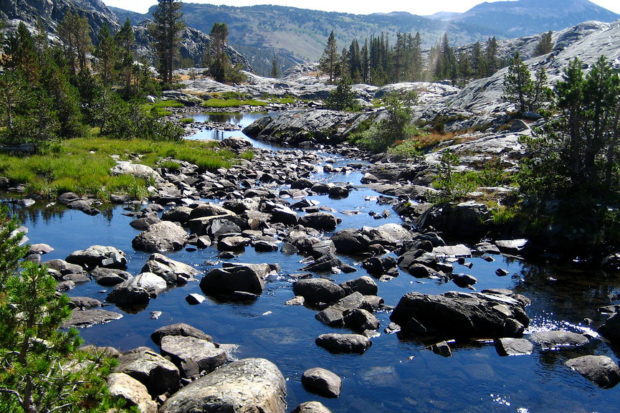
Communities across the San Joaquin Valley joined together on May 4 to demand help with the drinking water crisis faced by many of the San Joaquin Valley’s unincorporated towns. Events were held in Modesto and Seville, where community members and local leaders came together to celebrate National Drinking Water Week and call for immediate solutions.
What grabs the headlines is the shortage of agricultural water in the Valley, but people living in most rural communities depend on groundwater for their homes. For them, getting safe drinking water is an even greater challenge. That’s why 50 or more people from many Valley towns gathered in the village of Seville, nestled at the intersection of two busy country roads, near Visalia.
Susana De Anda, co-director of the Community Water Center, outlined the problems people here face everyday, “Seville embodies the water challenges that many communities in the Valley face; old dilapidated pipes, contaminated drinking water, the school is unable to provide safe drinking water to students, and high water rates for water people cannot drink.” Seville is no alone. In towns like Cutler, Orosi, Alpaugh, Lanare, Tonyville and Tooleville, it’s the same story.
More than 326,000 valley residents are served by public water systems with levels of contaminations over the legal limit, primarily due to bacteria, nitrates, arsenic, disinfectant byproducts and the discontinued soil fumigant DBCP. They are struggling to have what people in larger or more affluent Valley cities take for granted. Providing clean water through public systems is not rocket science.
The solution is simple; they need funding to improve the water infrastructure. It’s a matter of priorities, and towns populated by low-income residents, mainly farmworkers, do not have the resources or the political clout to make it happen. So it’s up to groups like the Visalia-based Community Water Center and allied organizations to lobby on behalf of embattled residents.
In 2006, some 20 community and advocacy groups founded AGUA (Asociacion de Gente Unida por el Auga) to provide a unified voice for improving water quality. It is a network of community residents and nonprofit organizations that is providing a growing political force around water in the Central Valley. They have put water quality issues onto the radar of the regional and state Water Quality Control boards, county governments and state agencies.
Rebecca Quintana lives in Seville and is on the local school board, where the elementary school is forced to spend $600 a month for clean water. She illustrated the kind of problems small communities have to endure with a walking tour of the village water system. We followed a pipeline along an open ditch full of water cutting through a plowed field.
At one point, the village water supply pipe in the ditch was exposed above water next to a section of old corroded pipe, and Quintana stopped to explain one part of Seville’s water problem, “As you can see, this section of pipe has been replaced, but the old pipe is what most of Seville’s pipes are like now.” She pointed out that the pipes leak and consequently suck ditch water into the water system’s pipes.
Looking around the field, we could see clumps of Tule rushes growing and Quintana explained that those are caused by leaks in the pipes that allow sand, algae and contaminants into the water supply. “Can you imagine what is in the water after the farmers have used this. This is what communities like Seville and communities all over the San Joaquin Valley are giving their children and their parents for bathing in. Some of the poorest families who cannot afford to buy water are mixing their baby formulas with this water.”
Quintana summed up the feelings of everyone at the gathering, “I always tell everybody it’s like living in a Third World country. This is what you see in Third World countries. This shouldn’t exist here in the state of California.”
*****
To learn more about the struggle for clean water in the San Joaquin Valley, contact the Community Water Center in Visalia at 559-789-7245.
Vic Bedoian is an independent radio and print journalist working on environmental justice and natural resources issues in the San Joaquin Valley. Contact him at vicbedoian@gmail.com.
